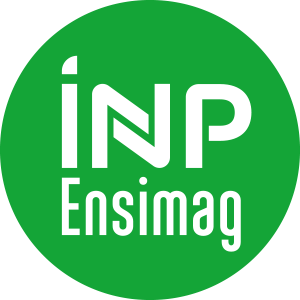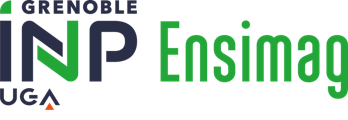Number of hours
- Lectures 16.5
- Projects -
- Tutorials 16.5
- Internship -
- Laboratory works 1.5
- Written tests -
ECTS
ECTS 3.0
Goal(s)
The aim of this course is to introduce basic numerical methods for solving problems arising from physical, mathematical or computer modellings. The mathematical theory of these methods will be associated with practical implementations in Scilab of real life applications.
Guillaume JAMES
Content(s)
This course examines the usual elementary numerical methods. In particular we focus on the convergence of iterative methods, the error control, stability and cost of algorithms. The following chapters will be covered:
- Solutions of linear systems (direct and iterative methods, eigenvalue problems).
- Solutions of nonlinear equations: Newton’s method.
- Data interpolation, numerical intégration.
- Non-linear equations: Newton's method
- Numerical schemas fo ordinary differential equations: Runge-Kutta methods
Algebra and analysis (of level Bachelor 2 or 3).
SESSION NORMALE :
Type of exam : Written examination of 3h (E1) and a lab work in Scilab (TP).
Duration : 3 h
Documents authorized : handwritten notes of course and exercises.
Documents forbidden : books and photocopies of books
Equipment
- Equipment authorized :
- Equipment forbidden : all electronic devices
Comment : The TD soutien is not evaluated
SESSION DE RATTRAPAGE :
Type of exam : Written examination of 2h (E2)
Duration : 2 h
Documents authorized : NO documents, neither printed nor hand written.
Documents forbidden :
Equipment
- Equipment authorized :
- Equipment forbidden : all electronic devices
N1=2/3E1+1/3TP+bonus TDsoutien
N2=2/3E2+1/3TP+bonus TDsoutien
The course exists in the following branches:
- Curriculum - Core curriculum - Semester 6
Course ID : 3MMMNB
Course language(s): 
The course is attached to the following structures:
- Team Analysis-Computational Science
You can find this course among all other courses.
- A. Quarteroni, R. Sacco, F. Saleri, Méthodes numériques pour le calcul scientifique ; programmes en Matlab, collection IRIS, Springer-Verlag France, 2000.
- P. Lascaux, R. Théodor, Analyse numérique matricielle appliquée à l’art de l’ingénieur, Tome 1, Masson
- Guichardet, Intégration analyse réelle, Ecole Polytechnique, Ellipse, 1989.
- Rauzy, Mathématiques : Cours d'analyse - Licence L1 et L2 , Eska, 2004
- Escofier, Sinnou : Toute l'algèbre de la licence : Cours et exercices corrigés, Dunod, 2006



